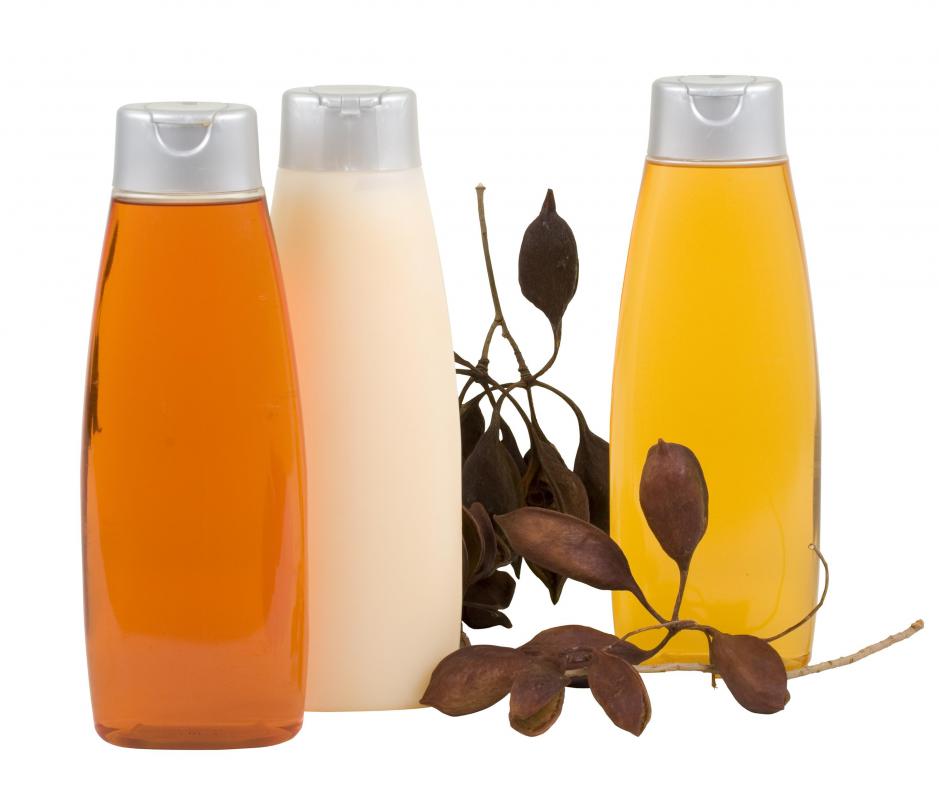At WiseGEEK, we're committed to delivering accurate, trustworthy information. Our expert-authored content is rigorously fact-checked and sourced from credible authorities. Discover how we uphold the highest standards in providing you with reliable knowledge.
What Are the Causes of an Itchy Flaky Scalp?
An itchy flaky scalp may be caused by infections, congenital conditions, allergies, and a variety of other factors. Patients who notice scalp changes can consult a dermatologist for advice and evaluation to determine their cause and develop a treatment plan. In some cases a referral to a specialist may be necessary to handle an unusual scalp condition or a disorder associated with more systemic health problems.
One reason to have an itchy flaky scalp is the result of an infection with fungi, bacteria, or other organisms. Localized inflammation can also occur without the presence of an infectious agent. The patient might notice pustules or lumps and seepage along with the flakes and itchiness. Topical creams are available to soothe irritated scalps and address the underlying cause of the infection.

Some skin conditions like psoriasis and seborrheic dermatitis can involve the scalp. In this case, the condition may be difficult to treat, but can often be managed with shampoos, topical creams, and other tools. Skin problems may be present elsewhere on the body for these patients, especially around folds in the skin, including the backs of the knees and around the nose.

Allergies and irritation can contribute to the condition. Some patients are allergic to ingredients in hair products and develop a reaction on their scalps, while others may notice problems after pulling the hair tight or wearing sharp pins. Systemic allergies can also be the basis for an itchy flaky scalp. For example, allergies to an ingested food can cause a rash to break out.

Genetics can play a role as well. Some families have a history of dandruff as well as generally dry scalps. The dryness can generate flakes, which may itch, and people may make the situation worse by scratching. An itchy flaky scalp in this case may be treatable with deep moisturizing products for the hair and scalp. These help the body retain moisture and limit flaking, along with the accompanying skin irritation.
Itchy flaky scalp can also arise as a medication reaction or a response to something like the conductive gel used in an electroencephalography study. Patients who notice sudden changes in their scalp health can discuss any alterations to their habits with a dermatologist to explore possible causes. It may be possible to treat an itchy flaky scalp by switching shampoos, adding moisturizer to a hair care regimen, or taking other simple steps. For more serious cases, medication is an option.
AS FEATURED ON:
AS FEATURED ON:













Discussion Comments
@OeKc05 – Regular dandruff shampoos didn't work for me, either. I tried a different one that contains coal tar, and it worked the first time I used it.
It smells a little like asphalt, but it works so well that I don't care. It looks like tree sap, and it has a pretty thick consistency.
I just massaged it into my scalp, concentrating on the spot with the most dandruff. I rinsed it out and applied conditioner, and my dandruff was gone.
I keep the bottle around in case I have another episode of dandruff. It's been months since I had to use it, though.
I have dandruff in the worst place on my scalp. The white flakes form right in the middle of my forehead where my hair begins, so they are very noticeable.
I've tried flaking them off with my fingernail, but this makes the skin turn red and ooze. Then, little scabs form, which look just as bad as the dandruff.
I've also tried dandruff shampoo, but it only helps if I use it all the time. The label says not to use it every day, so this is a problem for me.
My scalp does tend to itch more when I wear my hair pulled into a ponytail or braids. I get these little bumps that look like pus-filled pimples sometimes, too.
I wonder if maybe having the hair pulled tight irritates the oil glands on my scalp. Maybe it blocks them from being able to secret the oil, so a pimple forms. I know that makeup can clog the pores on your face and cause breakouts, so this might be what's happening on my scalp.
It's hard to deal with a flaky scalp. If I had flaky skin elsewhere, I would just apply lotion to treat it. If you put lotion in your hair, you wind up looking like you haven't washed it in days!
Post your comments